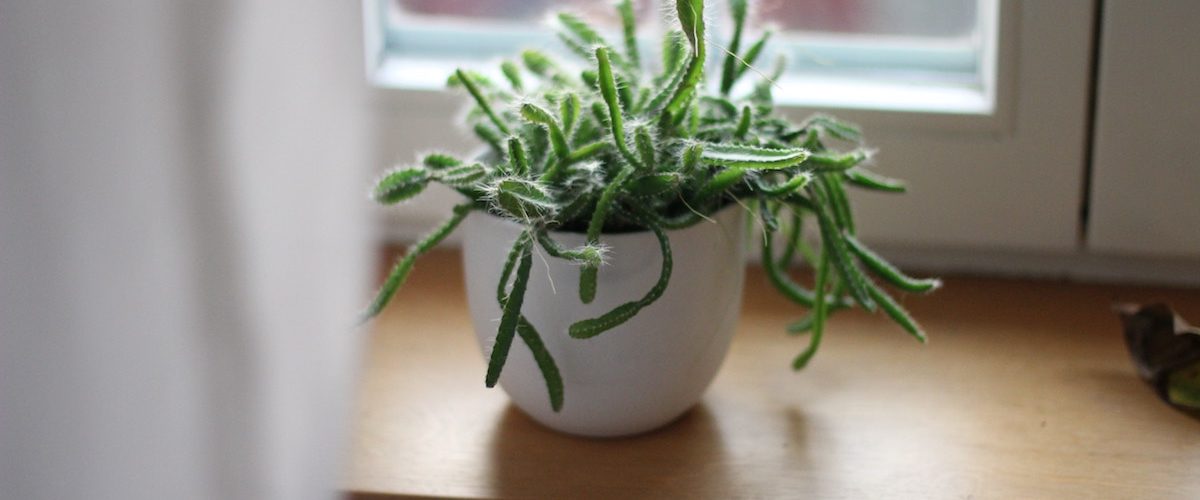No, it’s not your imagination. That coworker whose desk looks like a jungle of succulents and African violets does get more done in a day.
Why? Plants help create a healthier, more productive workplace. You don’t have to turn your office into a verdant oasis to see results. Just adding one or two plants to your work environment can have a significant impact on your overall health and productivity.
Better air quality
Plants improve the quality of our air. This can automatically increase your overall health and give you more energy. Since they can help remove dust and other allergens from the air, plants are also good for you if you have allergies.
You likely spend a vast majority of your day inside, and indoor air pollution can increase your risk of respiratory infections, heart disease, and even certain cancers. This may sound like something you just have to tolerate unless you’re willing to spend a fortune on an indoor air purifying system. But don’t be so quick to grab your checkbook. Plants act as nature’s air purifier by removing any dangerous compounds produced from fuels and furnishings.
Many offices naturally have air quality issues, as do all other indoor spaces. Plants can remove a majority of these toxins, which include formaldehyde, acetone, benzene, and more.
Consider plants like peace lilies, which grow well in limited or artificial light and can remove many toxins from the air. Spider plants are great for getting rid of carbon monoxide. (You might even consider putting several of these in the garage, near a spot that gets light.) Bamboo palms and chrysanthemums remove many chemical residues and don’t take up much room.
Improved focus and concentration
If you find yourself struggling with that 2 p.m. slump, don’t reach for the sugar. A candy bar or soda will only provide a short burst of energy. A touch of greenery may be the answer.
While it’s natural to feel low on energy and have trouble concentrating from time to time, plants can remedy a habitually forgetful mind. Spending time near plant life can radically improve your memory, allowing you to keep track of relevant facts and figures.
Keeping plants at your desk is a natural productivity hack that can rejuvenate and inspire you. You’re more likely to be happier and more creative as well. As a result, you’ll likely observe a higher quality of work and an overall surge in workplace success.
Sound mind, sound body
In addition to lowering blood pressure, plants are beneficial to our mental health. Researchers from Cardiff University’s School of Psychology found that watering and caring for a plant can be therapeutic. Just a few plants can relieve stress, while flowering varieties tend to lighten everyone’s mood and increase productivity. Less stress equals an improvement in overall well-being and happiness scores and increases productivity.
Natural source of humidity
Air conditioners and heating systems can easily dry out office air. In the winter time, this is particularly troublesome. A dry environment is more likely to harbor cold and flu viruses, resulting in more employees calling in sick. A few plants add just the right amount of humidity to lessen fatigue, itchy eyes, coughing, and other symptoms of an overly dry environment.
While adding a humidifier can help, this poses its own problems, as too much humidity can cause mold, which is often linked to allergies and other respiratory problems. Plants are natural humidifiers, generating about 10 percent of the moisture we breathe. Keep in mind, some plants, like succulents, retain water and as a result release very little back into the air. Others, like palms and ferns, can help prevent the office air from becoming too stale.
All-natural air fresheners
Do you have a stinky coworker? We hope not. But if so, plants offer a subtle and simple way to freshen the air. Certain plants have delightful fragrances that can fill the air with pleasant, refreshing scents. You won’t need to use chemicals to clear the air, and you won’t have to worry about offending anybody. Consider growing aromatic plants like lavender, lemon balm, or jasmine for the best results.
Sleep aids
Of course, you don’t want to nod off at your desk — but adding some plants to your workplace will help lower your stress and allow you to sleep easier once your head does hit the pillow.
The scents released from some plants, such as lavender, can help induce a feeling of tranquility that you will likely carry with you throughout the rest of the day. You’ll be able to arrive at work refreshed, instead of exhausted from a night of tossing and turning.
Best office plants
You don’t want to bring in plants that are hard to care for or need lots of sunshine. There are plenty of indoor-friendly plants to choose from. A cactus is a nice touch and doesn’t need much water. A rubber plant or fig tree may be great for an office corner, but shouldn’t sit near a heater or air vent. If your office is short on windows, consider plants that thrive in the shade. You also need to consider the temperature. Avoid drafty areas where a sudden change in temperature can harm your plants.
No green thumb? No worries. There are dozens of easy-to-grow species that are also easy to maintain. Aloe and other succulents rarely need tending so you won’t have to worry about adding extra tasks to your already jam-packed work schedule.
We often hear the corporate bosses say, “Less is more.” They like to see clean desks with limited clutter. Worried about someone complaining about the extra ornamentals or a few fallen leaves? Just explain to them how plants create a healthier, more productive workplace.














Send Comment: